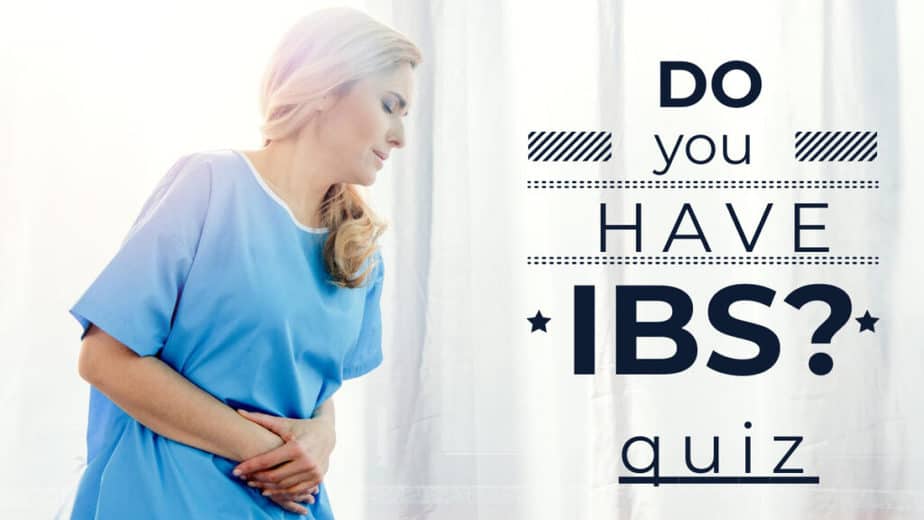Irritable bowel syndrome (IBS) symptoms can show up at any time and pain can be mild or sometimes very severe. It can be a mystery as to when the pain comes and goes.
One of the most common IBS symptoms is abdominal discomfort or pain, which may include bloating or cramping. Depending on the individual, the abdominal pain can be stronger when sitting down.
This article will explore why the abdominal pain from IBS is worse when sitting for some people.
Pain Sitting Down vs Standing Up
Some IBS sufferers say that when they’re standing up, the bloating and cramps are less intense, sometimes even non-existent. They have also said that the IBS was better when they were walking around or engaged in physical activity.
Lifestyle changes like diet and exercise should be part of an IBS treatment plan.
Even without IBS, if you sit down too long, you will experience pain in your lower back, hips, and abdomen. This is because our bodies need to move while we’re seated. If you don’t get moving every so often, it’s easy to become stiff and sore. Walking around helps prevent this.
Let’s explore what causes abdominal discomfort when you sit down and why body posture affects your gut health.
How Sitting Affects Your IBS
Sitting down too long is usually bad news for an IBS patient because it can trigger negative reactions from their digestive system. The longer you stay seated, the more pressure your intestines put on themselves.
Gas can be trapped in your intestines and when you sit, it can cause more pressure on the wall of your intestines, which triggers pain receptors in the intestinal wall.
Sitting also causes pressure on certain muscles that help support your spine. That leads to your back getting stiffer and less flexible.
That puts extra strain on your lower abdomen because it has to hold more of your weight when it’s not as evenly distributed when standing.
Another reason that you feel pain may be due to compression of the abdominal wall from tight fitting clothing.
Tips to Feel Better
There are a number of ways that you can feel better if your IBS symptoms are getting worse from sitting:
- Stand Up – When you are standing, your body is in an upright position, which allows the gas to move through your body faster. It won’t get trapped as easily in your intestines.
- Get Moving – Exercise helps keep your body healthy by keeping blood flowing through your veins and arteries. It keeps your heart pumping and lungs breathing properly. In addition, exercising increases circulation throughout your entire body, including the digestive tract.
- Lay Flat – Try laying flat instead of sitting upright. Laying flat allows your belly to expand outwards rather than pushing inward. This reduces pressure on your abdominal wall and intestines.
- Stretch & Breathe – Stretching exercises relax tight muscle groups and increase flexibility. Deep breathing exercises can help relieve anxiety.
- Drink Water – Drinking water helps flush out toxins and waste from your body. It also improves stool consistency and transit time.
- Try Medications – There are a number of pain relief medications that can relieve IBS symptoms. Some include antispasmodics and anti-inflammatories.
- Use Natural Remedies – Herbal remedies like peppermint oil or ginger root tea can help provide relief from IBS symptoms. Peppermint oil contains menthol which acts as a natural stimulant and reduces spasms. Ginger can help stimulate peristaltic action and relieve cramping. Read more on Tea for IBS.
- Related articles:
- IBS and Ginger
- IBS Supplements to Manage Symptoms
- Why Does IBS Make You Tired?
IBS and Sitting Final Thoughts
It’s important to note that while sitting may make your symptoms worse, it doesn’t mean they will never get better. You just have to find what works best for you.
One of the best things to do is to take notes on IBS symptoms, food intake, body positions (sitting, standing, or lying down), bowel functions, etc. in a symptom diary.
This diary will help you understand your habits and various types of pain that you experience. You may identify activities that either help or worsen your symptoms.
Over a period of time, you’ll gain a better and deeper understanding of how your body works and is affected by IBS.
Here are more articles on living with IBS:
- Is There Disability for IBS?
- IBS vs Diverticulitis: What Are The Differences?
- Will IBS Cause Mucus in the Stool?
- Stomach Feels Tight
Sources
- NCBI: Too Much Sitting: The Population-Health Science of Sedentary Behavior
- NCBI: Adverse Effects of Prolonged Sitting Behavior on the General Health of Office Workers
- NCBI: Influence of body posture on intestinal transit of gas



